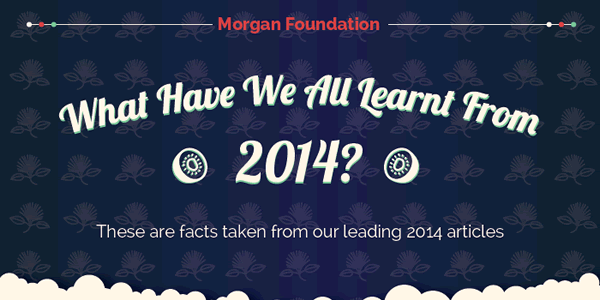From the Morgan Foundation a big thanks for joining in the debate during 2014.
Here is a fun little infographic inspired by our top blog posts of the year (in case you missed them, links to the blogs are below).
We hope you have a happy and safe holiday break and return refreshed for a big 2015.

These facts are taken from our top ranking articles of 2014.
That sugar is the new fat
The average Kiwi eats 29 teaspoons of sugar each day – the WHO recommends 6
And white bread is almost as bad
$1 white bread is stripped of most good nutrients (up to 75% in some cases)
We finally saw Gareth’s true colours
[a picture of Gareth in blue and green]
That our tax system is broken
Half of the top 200 wealthiest people don’t pay the top rate of income tax
That 1080 is the best weapon we have against predators (at the moment)
During a mast year mohua are 5 times more likely to survive in their first year in areas treated with 1080
That cats are by far the main wandering predator in urban areas
Wellington has 49 million cat trespasses per year
That New Zealand’s current water woes are primarily due to farming
Our national herd create 32 times as much poo and 36 times as much wee as our human population
What is in store for 2015?
- Our book on the Future of the Treaty of Waitangi
- Education
- Plus More of the same rabble rousing
Happy Holidays from the Morgan Foundation
What have we learnt from 2014 [infographic] was last modified: December 15th, 2015 by

